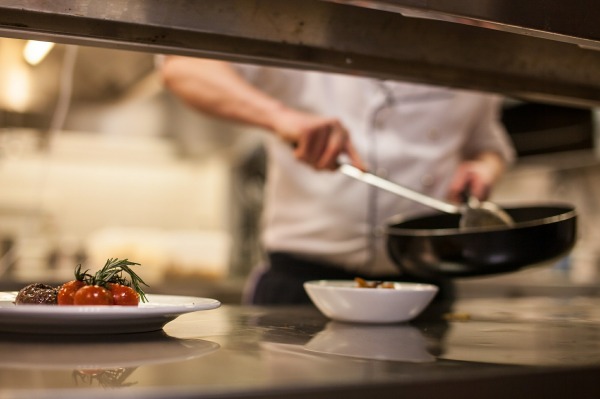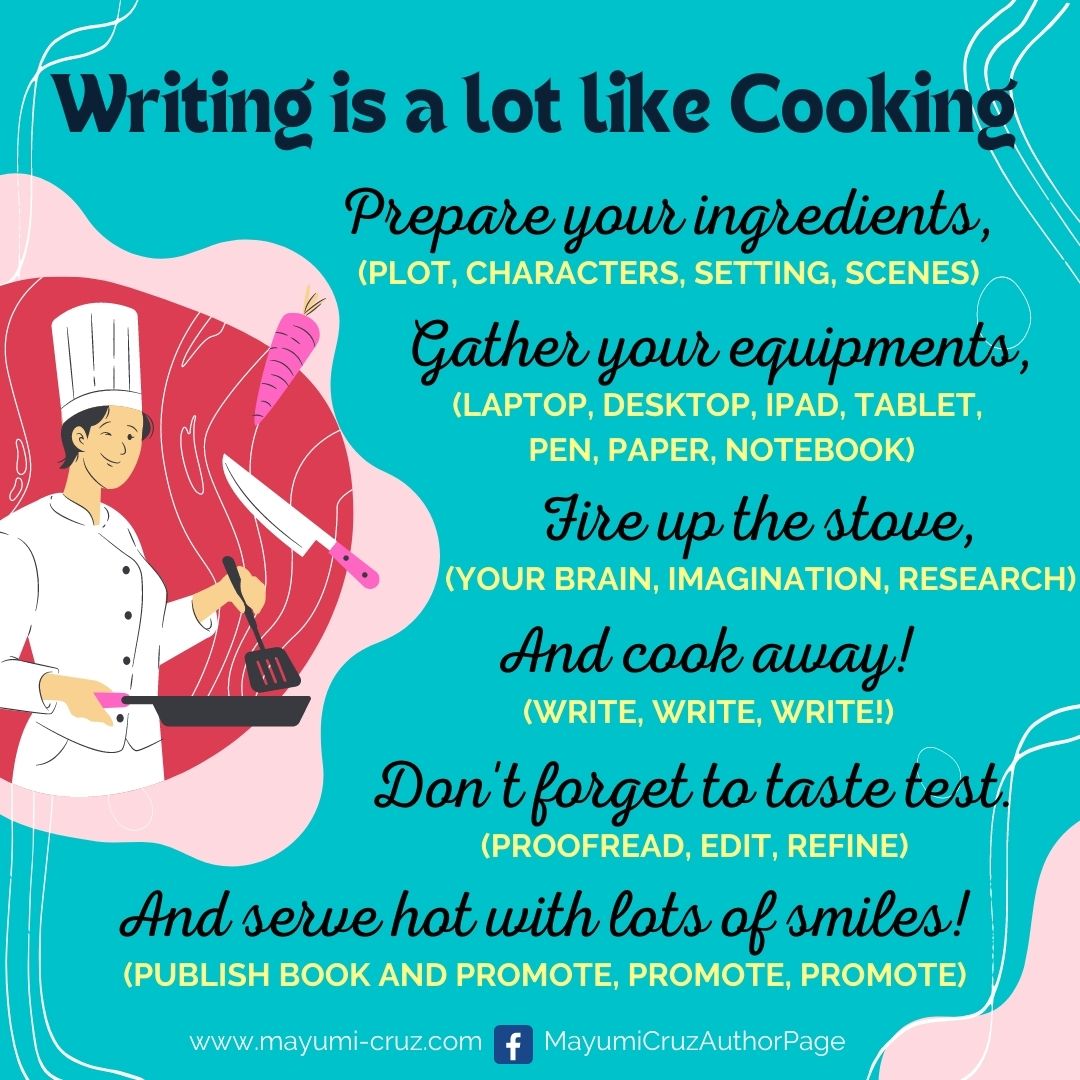Some people think writers are like wizards who wield their magic wands and murmur incantations, coming up with a finished story. Me, I’d like to think of writing in a more realistic, pragmatic way.
Writing is a lot like cooking.
Chefs, or professional cooks, come up with delectable dishes and sumptuous meals as a result of acquired knowledge, talent, creativity, passion, hard work, discipline, and persistence.
The same is true for writers. From beginning to end, writing is a lot like cooking. Wait, did I just say it again? Haha. Anyway, here’s how:
As with chefs, it starts with a recipe. A writer too has his “recipe,” his own original idea or concept for a story.
 Next, the writer gathers his “ingredients.” Have you heard of a chef who was able to cook a meal without any ingredient in hand? That would be impossible, right? So, what are the writer’s “ingredients?” These are the plot and the theme, the characters, setting, initial scenes. A meticulous chef would place his ingredients in the order he prefers, based on his recipe. Likewise, a scrupulous writer would make a detailed outline of his story, based on his “recipe” or idea/concept.
Next, the writer gathers his “ingredients.” Have you heard of a chef who was able to cook a meal without any ingredient in hand? That would be impossible, right? So, what are the writer’s “ingredients?” These are the plot and the theme, the characters, setting, initial scenes. A meticulous chef would place his ingredients in the order he prefers, based on his recipe. Likewise, a scrupulous writer would make a detailed outline of his story, based on his “recipe” or idea/concept.
To be able to cook, a chef needs equipments. The ingredients he prepared will not cook without a stove, oven or cooking utensils, will they? So does the writer. Nowadays, a laptop is a more effective and productive means to write. For some, the old ways of pen and paper work just fine. For many, it’s a combination of both. Think of the laptop as the stove, and the paper and pen as cooking pots and pans, spatula, turner, ladle, or whisks.
It’s time to get cooking! Chefs fire up their stove to cook their ingredients. It’s the same thing with writers. We turn on our laptop, grasp our pen and paper. But not just that. We fire up our good ol’ brain and lots of imagination, too, and we “cook” away! As a cook stirs, fries, mixes and adds in his ingredients, so do writers write, write, and write.
A great quality of a good chef is his attention to detail. He never forgets to taste his cooking to ensure quality. So does the writer. He proofreads, edits, and refines his work, and hires an editor to look at it with new eyes and spot what’s lacking and what’s too much. When his work is sufficiently satisfying (which may or may not take years, or for some, decades), that’s when the writer “serves” his “dish” — he is published, either through an agent or by self-publishing. It doesn’t end there, though. As with a seasoned chef, the professional writer serves his book to the public with a smile, by promoting and helping in marketing his work.
As a writer, have you “cooked” something delicious today? ?

